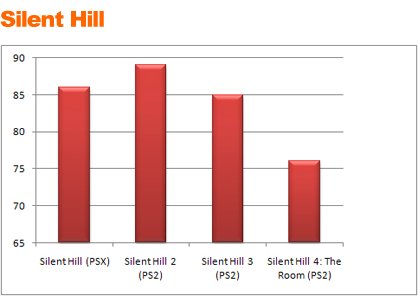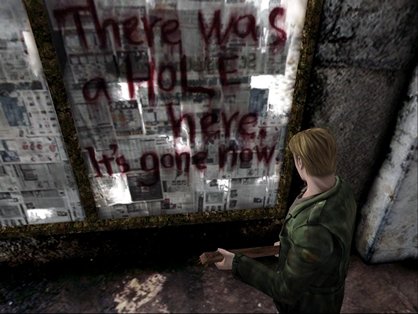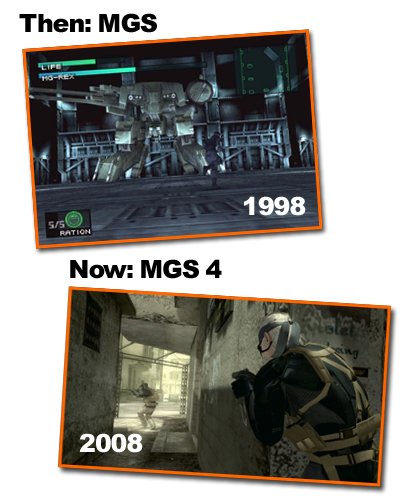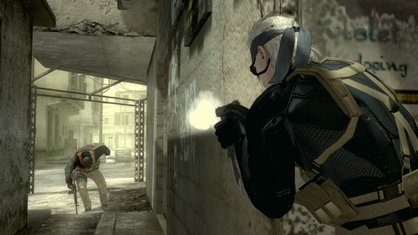Which number is the best number?
Here's a hint, it's four. No really! Find out why inside
The longer a series is, the more chances it has to score a hit. In the case of one of the longest-running game series ever, the sixth game stood out amongst the rest. Unfortunately, a series as old as King’s Quest also makes the review scores more questionable. Were games in 1984 reviewed the same way they are now? No, they weren’t reviewed at all.

Above: Hey look, it’s King’s Quest VI
The first game we have scores for is King’s Quest II: Romancing the Throne, but the reviews weren’t written in 1985 when the game was released, they were written within the last ten years. A reviewer today has a completely different contextual point-of-view than they would have had if they were in the ‘80s.
But there’s still hope for our experiment. Even a quick review of the series’ history will reveal that the sixth game is widely considered the best. Our numbers might be skewed by time, but that doesn’t necessarily invalidate the final result, because all we want to know is which game is the best in the series. If we were comparing these review scores to other games’, we might have a problem, but since all of the games are relatively old, their review scores are fairly accurate relative to each other.
Winner: SIX

Silent Hill 2 wins here. The game improved on the first in part due to improved technology (PS2, Xbox). Aside from the jump to a new console generation, Silent Hill 2 generally captured the essence of the series’ psychological tension, bizarre semi-sexual monsters. It also dealt with some of the gameplay and camera flaws of the first games.

Above: Silent Hill 2, the most Silent Hill-ey game in the series?
Sign up to the GamesRadar+ Newsletter
Weekly digests, tales from the communities you love, and more
Silent Hill 2 has an average score of 89. The third and fourth games just couldn’t recapture its creepy charm with enough zest to overtake it, scoring 85 and 76 respectively. Silent Hill 4: The Room, for example, was well-liked, but criticized for lacking puzzles of any complexity or boss fights. It is also probable that the series had begun to turn its own story and gameplay elements into clichés.
Winner: TWO
Call of Duty 4 is clearly the winner here. The game became the new standard for quality in shooters, both in terms of single player and multiplayer. While its predecessors were good, none of them contributed as much to the genre.

Above: The obvious winner
CoD 4 has an average score of 94, and is rivaled only by the first game in the series, which managed an average of 91. Like CoD 4, the first Call of Duty brought a lot of new ammo to the FPS genre, and was praised for the quality the AI controlled squad mates and the intensity of its single-player campaign.
Winner: FOUR

The Metal Gear series is impressively consistent in quality. The winner in this batch is two, but only by a very small margin. The margin is so small, it is questionable if the game is actually of a higher quality than the others in the series, or if its score is simply an indication of the context in which it was reviewed.

Above: Despite its anticipation, MGS 4 wasn’t able to surpass the critical reception of MGS 2
Metal Gear Solid, Metal Gear Solid 3, and Metal Gear Solid 4 all have average review scores of 94. Metal Gear Solid 2 leads the pack by only two points at 96. Told you it was close.
Ask a bunch of die-hard fans of the series which game is the best, and the answers you receive will probably be heavily varied. Metal Gear Solid is considered by many to be the best PlayStation game ever made. Some consider MGS 3 a great improvement over MGS 2, often citing protagonist Raiden as 2’s biggest flaw. And surely some will say that the current-gen MGS 4 is the pinnacle of the series.
Clearly it’s nearly impossible to determine which MGS game is truly “the best,” but based on our established system, we have to go by the numbers and call it for two.
Winner: TWO



